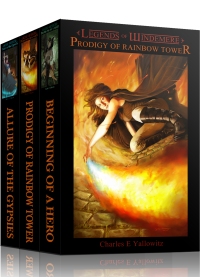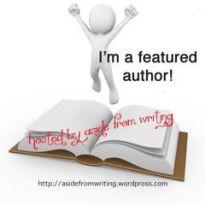
Seven Deadly Sins
Well, Do I Need to Use a Dragon? is still available as a 99 cent eBook on Amazon Kindle. Is it prideful to expect everyone to run off and buy copy? It could be. Authors need some level of ego, pride, and/or arrogance in order to get anywhere. If you think you suck then that’s going to come through in the quality of your work.
Of course, people can go in the opposite direction too. I considered this many times while writing Do I Need to Use a Dragon? and tried to analyze myself at times. Was my advice coming from too much pride? Did I come off as arrogant? Well, that was a problem a few times and I think I edited my ego out of things. This still got me thinking about authors, pride, and how we can make mistakes if we’re following that emotion a bit too much. Here are some ways to handle that.
- Accept criticism and advice with grace. Even if you’re not going to follow what is being said, listening goes a long way. A reader or fellow author are more inclined to continue interacting with you if you hear them out.
- Do NOT take offense if a person does NOT take your advice. Your passion and pride might blind you to the fact that you’re talking about something that clearly works only for you. Maybe there’s a difference in genre or the other author has a different vision for what they are going for. As long as they are polite in the refusal, you should be polite in accepting it.
- Try not to think that you’re reinventing the wheel or sliced bread. If you think you’re writing something that is 100% original, you are probably setting yourself up for a nasty wake up call. Why is that? Somebody out there will always see a similarity between your work and a previously released work. It could be a character, a theme, a set piece, the type of humor, writing style, or anything. Good chance that it comes from something you never saw, which is why you might be thinking that you are fully unique. Always stop your pride from getting to the point that you believe your own hype.
- If you are being helped by other authors to promote your books and are finding success, do NOT act like you did it on your own. This is pretty self-explanatory and feels like a ‘duh’ statement. Yet, we always see somebody talking as if they made it without help or refuse to thank their supporters. Even worse when they promise to help the other authors and then don’t return the favor.
- Don’t let negative reviews drive you to make a public spectacle. Even if they are unfair and/or insulting, letting your pride have you go on the attack won’t improve the situation. Read it, see if you can glean anything useful from it, and move on. Some people do this solely to trigger an author’s pride and trigger a scene.
- Never be afraid to laugh at yourself when you make a mistake. I’m not talking about full self-deprecating humor where you make fun of yourself. Just be laidback and accept your mistakes with humor. This will decrease the chances of lashing out and coming off as overly sensitive. Too much pride can make doing this difficult, but this tactic can help keep that down.
- No matter how much your pride tells you to do so, do NOT create a religion revolving around your books and identity. Let your beloved followers decide to do that on their own.
As stated earlier, Do I Need to Use a Dragon? is available for 99 cents on Amazon Kindle. Sale ends next week!





One of the best pieces of advice I got was from Elizabeth Moon when she was a guest at a convention and she found out my first book was being published. “Don’t try to come in like a rock star — unless you really have the chutzpah for it.” Not everyone can carry out some kind of author persona, in other words.
LikeLiked by 1 person
Great advice. Feels like coming in that hard will create too many lofty expectations.
LikeLiked by 1 person
Great tips! I’ve seen horor stories of what happened when an author engaged someone who commented negatively about one of the author’s books. 😞People treated that author like he or she was a pariah.
LikeLike
I’ve been there. Thankfully it was a private message, which slightly spilled out to public. Not enough that I got pounced on.
LikeLiked by 1 person
It doesn’t seem fair that a person can say whatever they want about an author’s work (even fictitious things) and the author is expected to avoid defending himself or herself. I guess it’s up to others to do so. Case in point: someone on Goodreads, who claimed to have read the book of a friend of mine, gave her a one-star review. It just so happened that I knew my friend’s editor was still working on the manuscript. So how could this person have read it? Even Goodreads didn’t have a cover for it. I contacted Goodreads and told them why I thought the review should be removed. I also learned from another person who regularly reviews books on Goodreads that she does so while drunk. 😞Writing one-star reviews was “fun.”
LikeLike
Someone wrote a one-star review of my third book. Mentioned things that didn’t happen or taken entirely out of context. Can’t do anything about it.
LikeLiked by 1 person
Very frustrating!!! 😡😡😡
LikeLike
This is all good advice. Well presented.
LikeLike
Thanks.
LikeLike